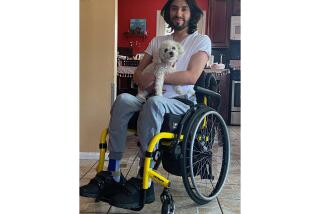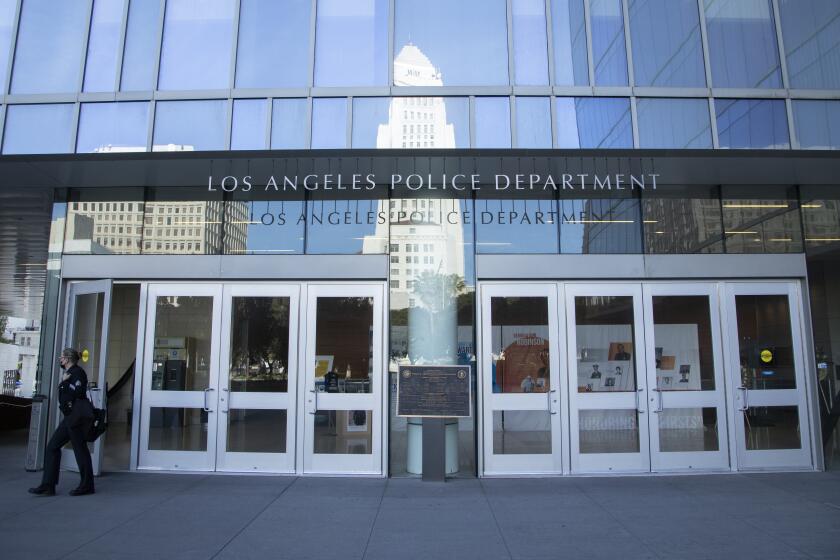Judge refuses to free murder defendant, 86, from mental hospital
Over the objections of Los Angeles County mental health officials, a judge Thursday ordered an 86-year-old murder defendant to remain in the government’s care and not be released to a family member.
Los Angeles County Superior Court Judge Norman Shapiro said that Nattie Kennebrew, who in 2009 allegedly shot and killed a handyman and tried to kill the manager at the Hollywood apartment building where he lived, must remain at Patton State Hospital in San Bernardino and that the county must pay for his care.
In his ruling to keep Kennebrew in a locked psychiatric hospital for mentally ill criminal defendants, Shapiro sided with the Los Angeles County district attorney’s office, which argued that Kennebrew remained a threat to public safety. According to prosecutors, county mental health officials had said that because of Kennebrew’s dementia, he did not need to remain under their oversight.
The judge rejected that argument.
“I can’t stress to you enough — you have someone who murdered someone, allegedly,” Shapiro said. “The court is concerned with public safety.”
Kennebrew is charged with fatally shooting handyman Gerardo Ramos, 46, on the afternoon of Jan. 28, 2009.
A military veteran and retired locksmith, Kennebrew had been living at the building for more than 15 years. Police said Kennebrew, who suffers from delusions of persecution, believed that Ramos had been trying to steal his Veterans Administration benefits.
Kennebrew shot Ramos multiple times, including once in the head and twice in the back, police said. He also allegedly attempted to shoot the apartment manager, Vyktor Arce, twice in the chest, but the .357-Magnum handgun didn’t fire.
At a hearing last month Arce told Shapiro he suffered stress, anxiety and sleep deprivation as a result of the incident.
Kennebrew is legally blind, confined to a wheelchair and suffers from severe dementia. Before the case went to a jury, his lawyer successfully argued that the defendant was not competent to stand trial; Kennebrew later was transferred to Patton, where a defendant can be held under state oversight no more than three years under California state law.
At that point, the county mental health department must ask the court to keep him confined under a guardianship arrangement, which would include the county paying for his care.
But the county mental health department’s Office of the Public Guardian refused to assume responsibility for Kennebrew in part because of a policy that it does not provide conservatorships for criminal suspects suffering from dementia.
A bid by the district attorney to have a probate court judge order public guardianship also failed.
Deputy Dist. Atty. James Falco argued Thursday that county mental health officials were “arbitrary” in choosing not to become guardians of Kennebrew and called their actions “an abuse of their discretion” that had “no rational basis.”
“This is a public safety issue,” Falco said.
He questioned what would happen it other criminal suspects who are mentally incompetent to stand trial are released even if they remain dangerous: “Who is going to be held responsible for injury or potential death to be caused to the public?”
Falco cited a report from Patton that considered Kennebrew “a dangerous person” who has “threatened to kill a fellow patient.”
Assistant County Counsel Leah Davis briefly appeared before Shapiro and said she disagreed with prosecutors but did not elaborate, saying her positions were laid out in a document submitted to the court.
Davis, however, argued that Shapiro did not have the authority to order the county to pay for Kennebrew’s continued care. Connie Draxler, deputy director of the public guardian’s office, said her office had not decided whether it would appeal the decision.
More to Read
Start your day right
Sign up for Essential California for news, features and recommendations from the L.A. Times and beyond in your inbox six days a week.
You may occasionally receive promotional content from the Los Angeles Times.







